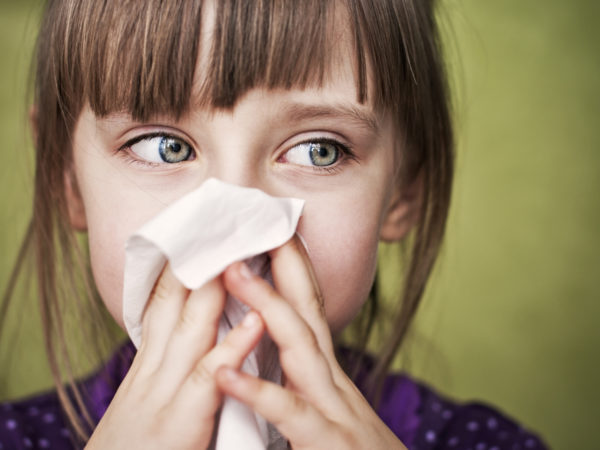A Hormone Treatment for Nosebleeds?
I have persistent nosebleeds. All the ear, nose, and throat (ENT) specialists I’ve seen say my nose is dry and the capillaries are too close to the surface. I recently read that ENT specialists also treat this problem with hormones. I just started using a hormone preparation the gynecologist gave me last year. I insert a small amount into the tip of my nose. Will this help?
Andrew Weil, M.D. | March 21, 2007

Nosebleeds are actually more of a bother than a health concern, although sometimes they can be a symptom of a more serious systemic problem, such as high blood pressure or a clotting disorder. Most often, they occur when you’re sneezing or blowing your nose frequently because of allergies or a cold. Nosebleeds are more common in the winter, when the lining of your nose is more likely to dry out because you spend a lot of time in heated rooms with little humidity. Because of the dryness, the blood vessels close to the surface can rupture when irritated. (It is true that some people are more at risk of nosebleeds because their capillaries are closer to the surface.)
I’ve read about the use of topical hormones such as estrogen for preventing nosebleeds, but to my knowledge it has been recommended only for patients with a rare genetic disorder called Hereditary Hemorrhagic Telangiectasia (HHT) that affects blood vessels throughout the body. Some physicians believe that topical estrogen may help prevent nosebleeds in some HHT patients, but the effectiveness of this treatment has never been proven in a scientific study. A related commercial product contains soy isoflavones which are supposed to selectively promote epithelial growth in the nose and prevent bleeds, but I have not seen the science to support the manufacturer’s claims.
If you live in a dry climate, one solution to the problem of regular nosebleeds is using a humidifier in your home. Another option is to rub some Vaseline, liquid vitamin E, or aloe in your nose. You can also try taking vitamin C as a supplement, 200 milligrams twice a day, since it decreases the fragility of small blood vessels. Another possibility is grape seed extract or a proprietary pine-bark extract called Pycnogenol; these are sources of anthocyanin pigments that have the same effect. All are worth a try.
To deal with active nosebleeds, first blow your nose gently. Don’t lean back. Instead, sit upright or lean your head slightly forward and pinch both nostrils. Hold them shut for five to 10 minutes without letting go and breathe through your mouth. By plugging your nose, you stop the blood flow and allow the blood vessels to form a clot. If the bleeding hasn’t stopped after 10 minutes, spray some decongestant into your nose. This shrinks the blood vessels and aids in repair. Then hold your nose again for 10 minutes. You could also try sniffing a little bit of powdered yarrow (Achillea millefolium), a safe herbal remedy that stops surface bleeding.
If after 20 minutes you’re still bleeding, see a doctor. You may need to have the blood vessels cauterized with silver nitrate solution. You’ll also likely need professional help if you’re taking blood thinners or large amounts of aspirin. Note that high doses of vitamin E and fish oil have blood-thinning effects that can contribute to the problem.
Andrew Weil, M.D.










